Jay Liebowitz: Profiles in Knowledge
 Jay Liebowitz: Profiles in Knowledge
Jay Liebowitz: Profiles in KnowledgeThis is the 94th article in the Profiles in Knowledge series featuring thought leaders in knowledge management. Jay Liebowitz is a professor, consultant, author, and editor living in Washington, DC. His research interests include knowledge management, data analytics, intelligent systems, intuition-based decision making, IT management, expert systems, and artificial intelligence. He has lectured and consulted worldwide.
Background
As of 2021, he is the Visiting Distinguished Professor at the International School for Social and Business Studies in Slovenia. Jay was the Fulbright Visiting Research Chair in Business at Queen’s University for the Summer 2017 and a Fulbright Specialist at Dalarna University in Sweden in May 2019.
Jay has recently served as the inaugural Executive-in-Residence for Public Service at Columbia University’s Data Science Institute. He was previously a Visiting Professor in the Stillman School of Business and the MS-Business Analytics Capstone & Co-Program Director (External Relations) at Seton Hall University. Jay previously served as the Distinguished Chair of Applied Business and Finance at Harrisburg University of Science and Technology. Before that, he was the Orkand Endowed Chair of Management and Technology in the Graduate School at the University of Maryland University College (UMUC). Jay served as a Full Professor in the Carey Business School at Johns Hopkins University.
At Johns Hopkins University, Jay was the founding Program Director for the Graduate Certificate in Competitive Intelligence and the Capstone Director of the MS-Information and Telecommunications Systems for Business Program, where he engaged over 30 organizations in industry, government, and not-for-profits in capstone projects.
Prior to joining Hopkins, Jay was the first Knowledge Management Officer at NASA Goddard Space Flight Center. Before NASA, he was the Robert W. Deutsch Distinguished Professor of Information Systems at the University of Maryland-Baltimore County, Professor of Management Science at George Washington University, and Chair of Artificial Intelligence at the U.S. Army War College.
Jay is the Founding Editor-in-Chief of Expert Systems With Applications: An International Journal. He was the Associate Editor of the international journal, Telematics and Informatics. He has published over 45 books and a myriad of journal articles on knowledge management, analytics, financial literacy, intelligent systems, and IT management. Jay served as the Editor-in-Chief of Procedia-CS (Elsevier). He is also the Series Book Editor of the Data Analytics Applications book series (Taylor & Francis), as well as the Series Book Editor of the new Digital Transformation: Accelerating Organizational Intelligence book series (World Scientific Publishing).
He was ranked one of the top 10 knowledge management researchers/practitioners out of 11,000 worldwide and was ranked #2 in KM Strategy worldwide according to the January 2010 Journal of Knowledge Management. He is a Fulbright Scholar, IEEE-USA Federal Communications Commission Executive Fellow, and Computer Educator of the Year (International Association for Computer Information Systems). In October 2011, the International Association for Computer Information Systems named the “Jay Liebowitz Outstanding Student Research Award” for the best student research paper at the IACIS Annual Conference. He is in the Top 2% of the top scientists in the world, according to a 2019 Stanford Study.
His recent books are Data Analytics and AI (Taylor & Francis, 2021), The Business of Pandemics: The COVID-19 Story (Taylor & Francis, 2021), A Research Agenda for Knowledge Management and Analytics (Elgar Publishers, 2021), Online Learning Analytics (Taylor & Francis, 2022), Digital Transformation for the University of the Future (World Scientific, 2022), Cryptocurrency Concepts, Technology, and Applications (Taylor & Francis, April 2023), and Pivoting Government through Digital Transformation (Auerbach Publications, August 2023). His next book will be Developing the Intuitive Executive: Using Analytics and Intuition for Success (Auerbach Publications, October 2023).
EducationGeorge Washington University
Doctor of Science in system analysis and management/operations research, 1985MBA in finance and investments, 1980BBA in accounting, 1979ProfilesColumbia UniversityNJBDA — New Jersey Big Data AllianceISM University of Management and Economics — LithuaniaResearch.comIGI GlobalContentGoogle ScholarResearchGateSemantic ScholardblpinformsArticlesThe New Star in Organizations: The Chief Knowledge Officer and the Knowledge Audit FunctionIf There is Artificial Intelligence, Is There Such a Thing as Artificial Stupidity?Bridging the Knowledge and Skills Gap: Tapping Federal RetireesCross-Generational Knowledge Flows in Edge Organizations: Research in Progress with Nirmala Ayyavoo and Hang NguyenIntelligent Search for Transforming the Way Organizations WorkKey ingredients to the success of an organization’s knowledge management strategyThe Next Generation of Knowledge Management: Implications for LIS Educators and ProfessionalsCultural Resistance to KM PersistsA Look at Improving Knowledge ManagementKnowledge Retention: What Practitioners Need to KnowHow to Make Knowledge Management More RigorousSMART (Strategize-Model-Act-Revise-Transfer) methodology for KM
Strategize:
Perform strategic planningDetermine key knowledge requirements (i.e., core competenciesSet knowledge management prioritiesPerform business needs analysisIdentify business problem(s)Establish metrics for successConduct cultural assessment and establish a motivate-and-reward structure to encourage knowledge sharingOutputs from the strategize phase:
Business needs analysis documentCultural assessment and incentives documentModel:
Perform conceptual modelingConduct a knowledge auditIdentify types and sources of knowledge (i.e., knowledge assets)Determine competencies and weaknessesPerform knowledge mapping to identify the organization and flow of knowledgePerform gap analysisProvide recommendationsDo knowledge planningPlan knowledge management strategyBuild a supportive, knowledge sharing cultureCreate and define knowledge management initiativesDevelop a cost-benefit analysisPerform physical modelingDevelop the physical architectureDevelop the framework for access, input/update, storage and eventual distribution & useDevelop a high level meta-data designConstruct a visual prototypeOutputs from the model phase:
Knowledge audit documentVisual prototype (i.e., the knowledge map showing the taxonomy and flow of knowledge)Knowledge management program planRequirements specifications documentAct:
Capture and secure knowledgeCollect and verify knowledgeValuate the knowledgeRepresent knowledgeFormalize how the knowledge is representedClassify the knowledge
Encode the knowledgeOrganize and store knowledge in the knowledge management systemCombine knowledgeRetrieve and integrate knowledge from the entire organizationCreate knowledgeHave open discussion with customers and interested parties both internal and external to the organizationPerform exploration and discoveryConduct experimentation (i.e., trial and errorShare knowledgeDistribute knowledgeMake knowledge easily accessibleLearn knowledge and loop back to Step 6Outputs from the act phase:
Knowledge acquisition documentDesign documentVisual and technical knowledge management system prototypesRevise:
Pilot operational use of the knowledge management system;Conduct knowledge reviewPerform quality controlReview knowledge for validity and accuracyUpdate knowledgePerform relevance reviewPrune knowledge and retain what is relevant, timely, and accurate and proven usefulPerform knowledge management system reviewTest and evaluate achieved resultsRevalidate/test against metricsOutputs from the revise phase:
Evaluation methodology and results documentKnowledge management system pilotUser’s guide for the knowledge management systemTransfer:
Publish knowledgeCoordinate knowledge management activities and functionsCreate integrated knowledge transfer programsNotify where knowledge is located and what lessons were learnedPerform serious anecdote management (i.e., publicize testimonials of the benefits of the KMS)Use knowledge to create value for the enterpriseSell (e.g., package knowledgebases for sale)Apply (e.g., knowledge management consulting services, apply methodology)Use (e.g., improve customer satisfaction, employee support and training)Monitor knowledge management activities via metricsConduct post-auditExpand knowledge management initiativesContinue to learn and loop back through the phasesOutputs from the transfer phase:
Maintenance document for the knowledge management systemFull production knowledge management systemPost-audit documentLessons learned documentArticles by OthersDSI’s Inaugural Executive-in-Residence for Public Service is Helping the Federal Government Benefit from Data Science by The Data Science Institute at Columbia UniversityForget Gen Y! Focus on the Disappearing Boomers by Mary AbrahamReview: What they didn’t tell you about KM by Andrea JapzonSIKM Leaders CommunityPosts by and aboutSeptember 17, 2024 PresentationKMWorld ConferenceC303: Developing a KM Strategy & Framework: Lessons Learned & Shared — Slides (with Jack L Price and Ben Apple)Keynote: Building Organizational Intelligence: Knowledge Sharing in the Age of New TechnologiesArticle10 Rules of the Road for KM SuccessKM-Analytics Synergies and the Future of KMModern KM Needs Both Man and Machine, KMWorld Connect Speakers Maintain
10 Rules of the road for Knowledge Management
You need to have a champion among senior leadership and alignment with corporate goals.You need a well-designed KM implementation plan.You need a formal knowledge retention strategy.You need to incorporate KM as part of other strategies.You need to be thoughtful in your application of KM.You need to align KM to corporate culture.You need to celebrate your successes.You need to have the right metrics in place.Don’t force-fit the technology.Know that KM is just one part of strategic intelligence.KMWorld 2016 Keynote Panel: Hacking KMKMWorld 2013 B304: Content Challenges & Opportunities — SlidesKMWorld 2012 A106: Critical Success Factors in KM Initiatives — Slides10 Keys to Success for Knowledge Management Initiatives
Top Ten Keys to Knowledge Management Success
Have A Senior Champion & Align Your KM Strategy With Your Organizational Strategies, Goals, and ObjectivesDevelop A Well-Designed KM Implementation (People, Process, and Technology)Develop a Formal Knowledge Retention Strategy — Start from Day One of the Employee’s Life with the OrganizationIncorporate KM as Part of Human Capital Strategy, Succession Planning, Workforce Development, and/or Quality ManagementBe Thoughtful in Your Approach (Knowledge Audit, Social Network Analysis, etc.)Align Your KM Approaches to Fit Your Organizational CultureCelebrate the Successes, Then Bring in the Bittersweet StoriesDevelop KM Metrics, Especially Outcome MeasuresDon’t Force-Fit Technology (People/Culture/Process Are Where the Rubber Hits the RoadKM is Just One Part of Your “Strategic Intelligence”Knowledge Sharing Tenets for Success
Enhance reward and recognition system to include learning and knowledge sharing competenciesAcquaint people with knowledge sharing and its benefitsShare the message that with creativity comes failure and we all benefit from talking about our successes and our failuresIntegrate knowledge sharing into everyone’s jobEducate people about what types of knowledge are valuable and how they can be usedMake sure the technology works for people, not vice versaPodcastKnowledge Management and Analytics with Chelsea BarrettTranscriptVideosHow Artificial Intelligence, Analytics, & Internet Affect Our Liveshttps://medium.com/media/db62aac5785378aef6c91ab7822f2080/hrefInaugural HHS Executive Knowledge Management Summit — 2019https://medium.com/media/92471356a60a7814a82bf141b75dbbf4/hrefWhy KM Efforts Failhttps://medium.com/media/23d8c904038cf6e5bc1767a75295483b/hrefKM-Analytics Synergies and the Future of KMhttps://medium.com/media/0f9ed09bddab2034892d0f433da23287/href10 Rules of the Road for KM Successhttps://medium.com/media/3e75ce2fe11a67dd3f9e25df1d67b051/hrefKnowledge Management in the Technical information Centerhttps://medium.com/media/6b436d1393adfd219468d94c12f90c50/hrefBeyond the Great Recession: Possibilities and Predictionshttps://medium.com/media/736d75621e53325137e59dddadb35a9e/hrefIntuition Based Decision Makinghttps://medium.com/media/93b6b48e72e5a6873d14546c7fa89ab9/hrefKnowledge Management and e-Learning: Putting Theory into Practicehttps://medium.com/media/d40de6f6574c894fabf9b09596884f2c/hrefBooksAmazonKnowledge ManagementKnowledge Management Handbook: Collaboration and Social Networking, Second Edition Knowledge Management Handbook, First EditionBeyond Knowledge Management: What Every Leader Should Know
Knowledge Management Handbook, First EditionBeyond Knowledge Management: What Every Leader Should Know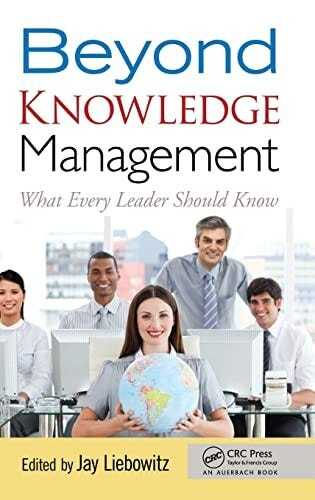 Successes and Failures of Knowledge Management
Successes and Failures of Knowledge Management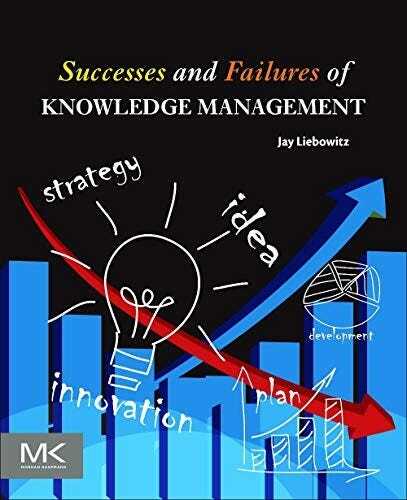 Knowledge Management: Learning from Knowledge EngineeringMaking Cents Out of Knowledge ManagementWhat They Didn’t Tell You About Knowledge ManagementKnowledge Management and E-Learning with Michael FrankKnowledge Retention: Strategies and SolutionsStrategic Intelligence: Business Intelligence, Competitive Intelligence, and Knowledge ManagementKnowledge Management in Public Health edited with Richard A Schieber and Joanne AndreadisBuilding Organizational Intelligence: A Knowledge Management PrimerAddressing the Human Capital Crisis in the Federal Government: A Knowledge Management PerspectiveKnowledge Organizations: What Every Manager Should Know with Tom BeckmanKnowledge Management and its Integrative Elements edited with Lyle C. WilcoxSocial Networking: The Essence of InnovationHandbook of Knowledge Management Vol. 1 edited by Clyde Holsapple — Chapter 21: Knowledge Sharing Proficiencies — with Yan ChenDigital TransformationPivoting Government through Digital Transformation
Knowledge Management: Learning from Knowledge EngineeringMaking Cents Out of Knowledge ManagementWhat They Didn’t Tell You About Knowledge ManagementKnowledge Management and E-Learning with Michael FrankKnowledge Retention: Strategies and SolutionsStrategic Intelligence: Business Intelligence, Competitive Intelligence, and Knowledge ManagementKnowledge Management in Public Health edited with Richard A Schieber and Joanne AndreadisBuilding Organizational Intelligence: A Knowledge Management PrimerAddressing the Human Capital Crisis in the Federal Government: A Knowledge Management PerspectiveKnowledge Organizations: What Every Manager Should Know with Tom BeckmanKnowledge Management and its Integrative Elements edited with Lyle C. WilcoxSocial Networking: The Essence of InnovationHandbook of Knowledge Management Vol. 1 edited by Clyde Holsapple — Chapter 21: Knowledge Sharing Proficiencies — with Yan ChenDigital TransformationPivoting Government through Digital Transformation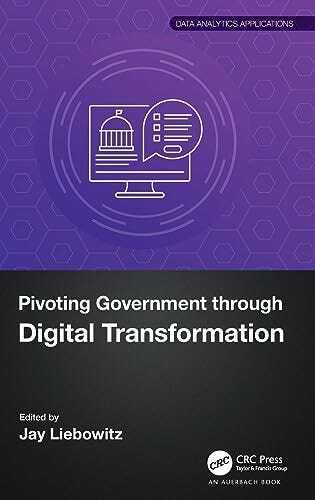 Digital Transformation for the University of the FutureIntuitionDeveloping the Intuitive Executive: Using Analytics and Intuition for Success
Digital Transformation for the University of the FutureIntuitionDeveloping the Intuitive Executive: Using Analytics and Intuition for Success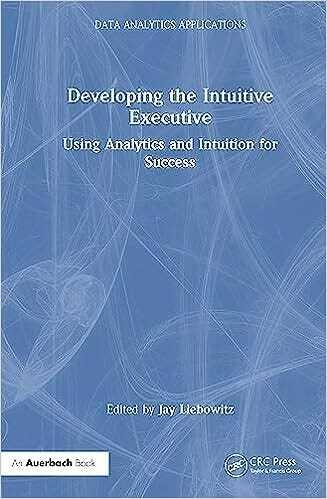 Bursting the Big Data Bubble: The Case for Intuition-Based Decision MakingIntuition, Trust, and Analytics With Joanna Paliszkiewicz and Jerzy GołuchowskiDeveloping Informed Intuition for Decision-MakingHow Well Do Executives Trust Their Intuition edited with Yolande Chan, Tracy Jenkin, Dylan Spicker, Joanna Paliszkiewicz, and Fabio BabiloniAnalytics and AIA Research Agenda for Knowledge Management and Analytics
Bursting the Big Data Bubble: The Case for Intuition-Based Decision MakingIntuition, Trust, and Analytics With Joanna Paliszkiewicz and Jerzy GołuchowskiDeveloping Informed Intuition for Decision-MakingHow Well Do Executives Trust Their Intuition edited with Yolande Chan, Tracy Jenkin, Dylan Spicker, Joanna Paliszkiewicz, and Fabio BabiloniAnalytics and AIA Research Agenda for Knowledge Management and Analytics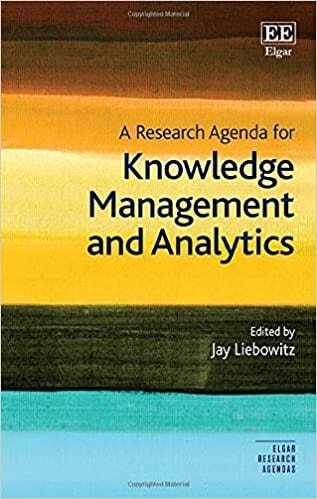 Data Analytics and AIBig Data and Business AnalyticsBusiness Analytics: An IntroductionOnline Learning AnalyticsThe Handbook of Applied Expert SystemsManaging Expert Systems edited with Efraim TurbanIT ManagementInformation Technology Management: A Knowledge RepositoryCases on Information Technology Management in Modern Organizations edited with Mehdi KhosrowpourCommunicating As IT Professionals with William Agresti and G. Reza Djavanshir[image error]
Data Analytics and AIBig Data and Business AnalyticsBusiness Analytics: An IntroductionOnline Learning AnalyticsThe Handbook of Applied Expert SystemsManaging Expert Systems edited with Efraim TurbanIT ManagementInformation Technology Management: A Knowledge RepositoryCases on Information Technology Management in Modern Organizations edited with Mehdi KhosrowpourCommunicating As IT Professionals with William Agresti and G. Reza Djavanshir[image error]



